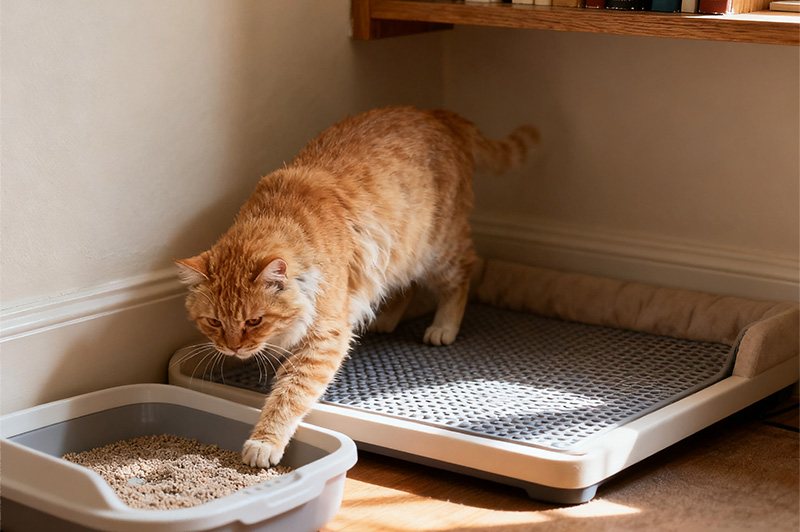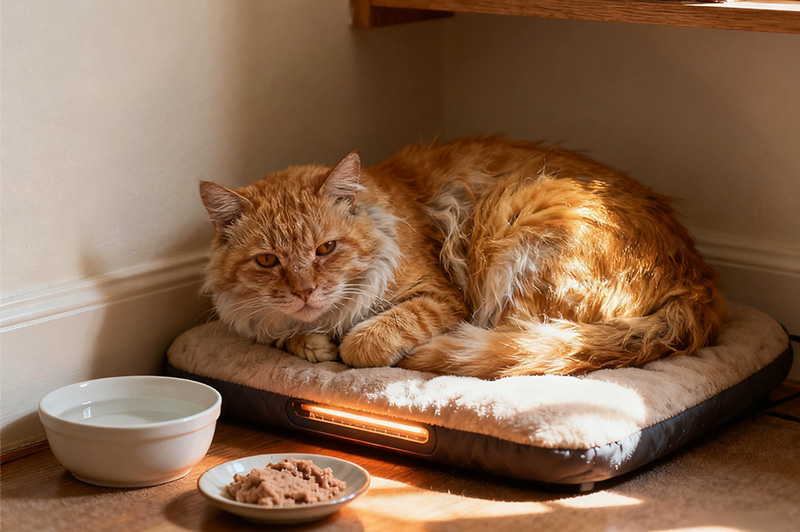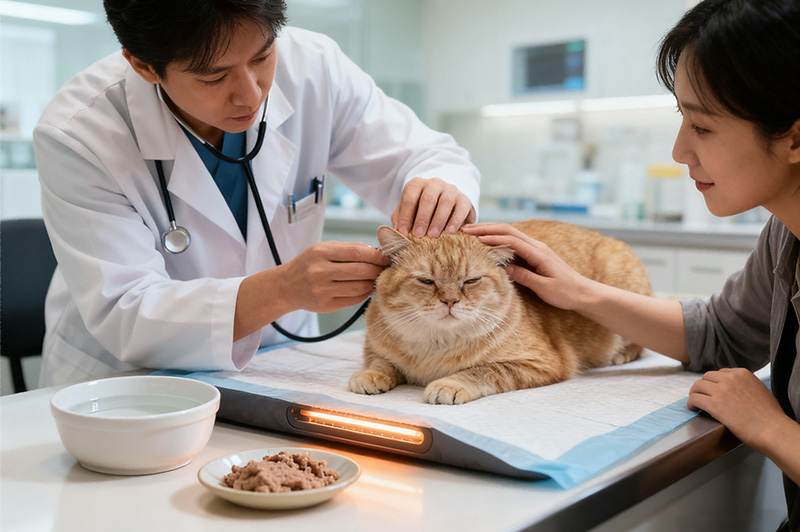As cats enter their golden years—specifically reaching 15 years of age and beyond—they transition into a "senior citizen" stage that demands specialized, gentle care. These beloved companions, who have shared countless moments with their humans, now rely on intentional support to maintain comfort, dignity, and quality of life. Below is a detailed breakdown of how to nurture feline seniors through this phase:

1. Embrace Every Moment with Compassion
For cats over 15, time together becomes even more precious. Approach care with patience, empathy, and an understanding that their needs will evolve. Small, consistent gestures—such as soft petting, quiet presence, or familiar routines—go a long way in reassuring them and strengthening your bond.
2. Key Physical Characteristics of Feline Seniors
Recognizing the physical changes in aging cats is critical to tailoring care:
- Extreme Fragility: Their bodies become more delicate, with thinner skin, reduced muscle mass, and increased susceptibility to injury.
- Coexisting Chronic Conditions: Many senior cats live with multiple health issues, such as kidney disease, arthritis, hyperthyroidism, dental disease, or heart conditions.
- Severe Mobility Limitations: Arthritis or muscle loss often restricts movement—climbing stairs, jumping onto furniture, or even walking may become difficult or painful.
- Significant Cognitive Decline: Some cats experience age-related cognitive changes, including disorientation (e.g., forgetting where the litter box is), altered sleep cycles, or reduced responsiveness to familiar cues.
- 24/7 Care Need: Due to these vulnerabilities, constant monitoring and assistance are often required to address needs promptly.
3. Core Care Focus: Nutrition & Hydration
Proper nutrition and hydration are foundational to supporting a senior cat’s health and comfort:
- Food Choices: Offer highly palatable, easy-to-lick options—such as meat purees, veterinary-prescribed mousse diets, or softened kibble (mixed with warm water or broth). These textures accommodate reduced jaw strength or dental pain.
- Feeding Routine: Opt for small, frequent meals (3–4 times daily) instead of large portions. This eases digestion (common in seniors with slowed metabolic rates) and encourages consistent food intake, especially for cats with decreased appetite.
- Artificial Feeding When Needed: If a cat refuses to eat on their own (due to illness or weakness), work with your veterinarian to safely administer nutrition via a syringe or feeding tube—never attempt this without professional guidance.
- Prioritize Fresh Water: Dehydration is a major risk for senior cats (especially those with kidney disease). Provide multiple shallow water bowls in easily accessible locations, or use a pet water fountain to encourage drinking.
4. Medical Care: Prioritize Quality of Life
For feline seniors, medical care shifts from curative to palliative and supportive—focused on relieving suffering and preserving comfort:
- Collaborate Closely with Your Veterinarian: Schedule regular check-ups (every 3–6 months, or more frequently for cats with chronic conditions) to monitor health. Work together to create a personalized palliative care plan, which may include pain management (e.g., anti-inflammatory medications for arthritis), medication for chronic diseases, or symptom relief (e.g., anti-nausea drugs).
- Frequent Condition Monitoring: Watch for subtle changes in behavior or health—such as reduced appetite, lethargy, difficulty breathing, incontinence, or increased vocalization. These may signal pain, illness, or discomfort that requires immediate attention.

5. Create an Environment of Ultimate Comfort
A safe, calm, and accessible space is non-negotiable for senior cats:
- Resting Areas: Provide warm, soft, low-to-the-ground beds (avoid high perches) in quiet, draft-free spots. Consider heated beds or blankets to soothe achy joints (ensure they’re set to a low, safe temperature).
- Stable, Quiet Surroundings: Minimize loud noises, frequent furniture rearrangements, or new pets/guests—senior cats thrive on routine and may become stressed by change, which worsens cognitive or physical discomfort.
- Toileting Assistance: For cats with mobility issues, place low-sided litter boxes in easily reachable areas (avoid stairs). If incontinence occurs, use washable, non-toxic changing mats or pet pads in their resting spaces to keep them clean and dry.

6. Emotional Support: Unconditional Love & Understanding
Aging brings emotional changes too—senior cats may feel confused, anxious, or less independent. Support their emotional well-being by:
- Gentle Companionship: Spend quiet time with them daily, speaking in soft, reassuring tones. Avoid sudden movements that may startle them.
- Accepting Aging Changes: Be patient if they forget routines, have accidents, or become less playful. These are not behavioral issues—they’re signs of aging, and your acceptance will help reduce their stress.
- Unwavering Patience: Care tasks (e.g., feeding, grooming, assisting with movement) may take longer. Approach each task calmly, and celebrate small wins—like a successful meal or a peaceful nap.
Caring for a feline senior is a labor of love—one that honors the trust and joy they’ve brought into your life. By focusing on comfort, compassion, and proactive care, you can help them enjoy their golden years with dignity and peace.




